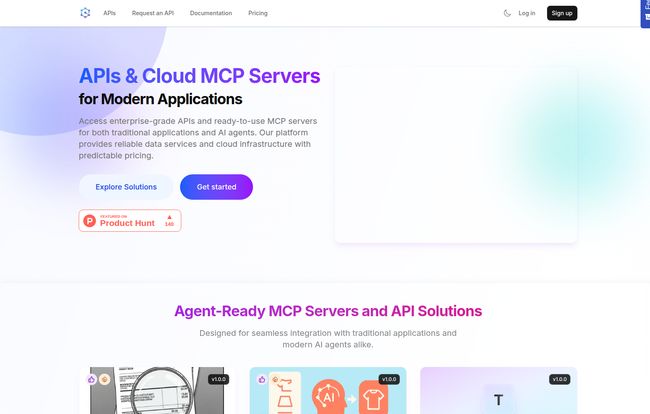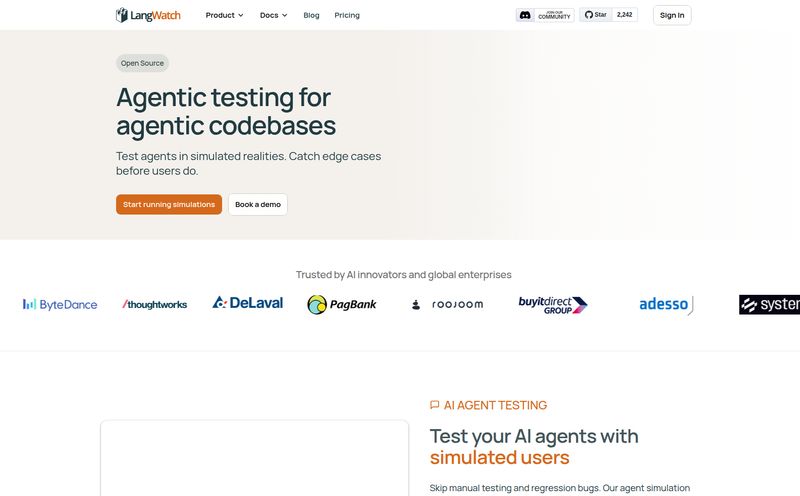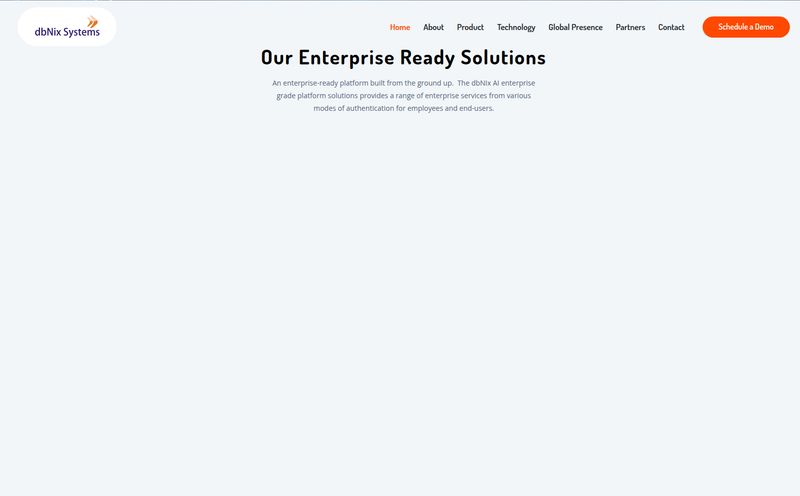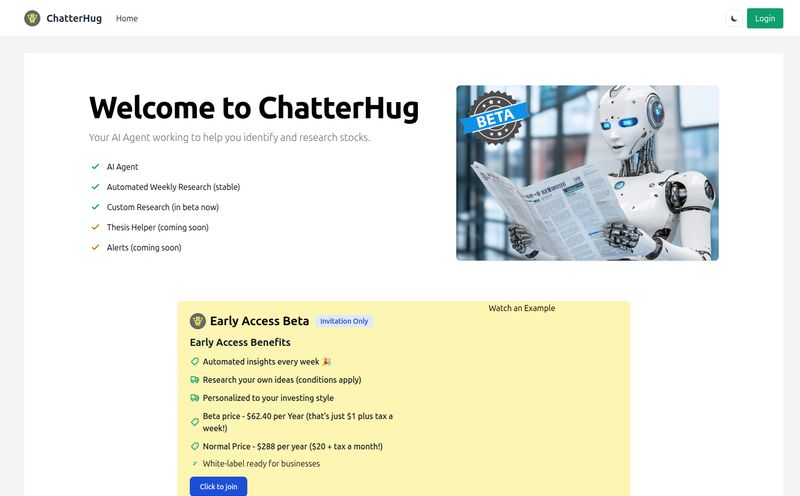As someone who has spent more years than I’d like to admit wrestling with APIs, I’ve seen it all. The good, the bad, and the downright infuriatingly undocumented. We've gone from simple REST endpoints to complex GraphQL queries, and just when we thought we had a handle on things, the entire AI revolution came crashing through the door like the Kool-Aid Man.
Suddenly, it wasn't enough for our apps to just fetch data. Now, we're building AI agents that need to understand, process, and act on that data. This has created a whole new level of complexity. How do you give an AI like GPT or Claude the keys to an API without it going haywire? How do you make these services not just data sources, but active participants?
I’ve been on the hunt for platforms that are actually tackling this problem head-on, not just slapping an "AI-Powered" sticker on their old tech. And that's how I stumbled onto API Hub. It looked interesting, promising a new way to connect traditional apps and modern AI agents. So, naturally, I had to take it for a spin.
So What Exactly is API Hub Anyway?
At first glance, you might think, "Oh, another API marketplace." I get it. We've seen a few of those. But API Hub is playing a slightly different game. Think of it less like a dusty library of endpoints and more like a universal translator and mission control for your applications.
Yes, it's a place where you can find and use enterprise-grade APIs. And yes, it’s a platform where you can publish your own APIs and even make some money (more on that later). But the core of what makes API Hub stand out is its native support for something they call the Model Context Protocol (MCP). And trust me, this is the part you'll want to pay attention to.
The Secret Sauce: Understanding the Model Context Protocol (MCP)
This MCP thing is, in my opinion, the heart of the whole platform. It’s what makes an API “AI-ready.” In simple terms, MCP is a framework that allows AI models to do more than just read data from an API; it allows them to interact with it, to understand its functions, and to execute actions. It’s the difference between asking an API for the weather forecast (simple data retrieval) and telling an AI agent, “Book me a flight to San Diego next Tuesday if the forecast is sunny” (data retrieval + context + action).

Visit API Hub
This is a fundamental shift. API Hub provides ready-to-use MCP servers that you can wrap around existing APIs, effectively teaching them how to speak the language of AI. And to prove it’s not just marketing fluff, they have an incredible Interactive Playground. You can literally fire up their interface, pick an API, and start throwing prompts at it with models like OpenAI's GPT or Anthropic's Claude in real-time. Seeing an AI correctly interpret your natural language and then trigger a series of API calls is… well, it’s pretty darn cool. It feels like you’re actually programming the future.
A Playground for API Consumers
For developers who just need to get a job done, API Hub is a solid resource. The marketplace already features some genuinely useful tools, like an Invoice Extractor and a Product Classifier. The documentation is a breath of fresh air because it's designed for both humans and AI. It's clear, concise, and provides the context an AI agent needs to understand how to use teh endpoint properly.
This dual-purpose documentation is more important than it sounds. It means less time for you trying to write complex wrapper functions and prompt-engineering your way around a poorly explained API. The platform does the heavy lifting, which in the world of CPC and traffic generation, means getting your MVPs and campaigns out the door faster.
Publishing APIs Without the Headache
Now, let's flip the coin. What if you've built a killer API and want to monetize it? This is often where the dream dies for many indie developers. You have to worry about hosting, uptime, security, billing, user management… it’s a full-time job.
API Hub’s proposition here is compelling. They handle the entire infrastructure. You bring your API, and they give you:
- Simple Publishing Process: You define your endpoints, set your pricing model (free, pay-per-request, or consumption-based), and submit it for review.
- Built-in Payment Processing: They handle all the billing and credit systems. No need to integrate Stripe or paddle yourself.
- Generous Revenue Sharing: This is the big one. Publishers can earn up to 70% revenue share. That's a very competitive rate and shows they’re serious about building a healthy ecosystem.
Honestly, this lowers the barrier to entry significantly. If you have a service that solves a real problem, you can turn it into a product on their marketplace without becoming a DevOps expert overnight.
Let's Talk Money: The Pricing Breakdown
Alright, no review is complete without digging into the pricing. API Hub uses a pretty straightforward tier system, plus a credit-based payment model for paid APIs, which I appreciate for its predictability.
| Plan | Price | Best For | Key Features |
|---|---|---|---|
| Personal | $0 / monthly | Individuals and hobbyists | Access to all APIs, 500 requests/day limit, 1 team member. |
| Team | $7 / user / monthly | Collaborative teams | Unlimited members, standard rate limits, priority support, analytics. |
| Enterprise | Contact for Price | Large organizations | Custom limits, SLA, dedicated support, premium revenue sharing. |
My take? The Personal plan is a no-brainer for trying things out. It's completely free, and you can access all the free APIs and play around. But that 500 requests/day limit is a real ceiling. You’ll hit it fast on any serious project. The Team plan, at $7 per user, feels like the real starting line. It gives you the higher rate limits and support you'd actually need for a production application. The Enterprise plan is… well, it’s for enterprises. If you need an SLA, you already know who you are.
The Good, The Bad, and The "Coming Soon"
No tool is perfect, so let's get down to brass tacks.
What I Really Like
The forward-thinking approach with MCP is the undeniable star of the show. The interactive playground is more than a gimmick; it’s a genuinely useful development tool. And for creators, the simple publishing process and high revenue share are huge wins. The whole platform feels thoughtfully designed by people who actually understand the problems developers are facing in this new AI-driven landscape.
A Few Caveats
The rate limits on the free Personal plan are quite low. While fine for a quick test, it makes it hard to build a proper hobby project without upgrading. Also, some features, like Webhook integrations for the Team plan, are still listed as “coming soon.” That's not a dealbreaker for me, but it's something to be aware of if webhooks are critical for your workflow right now.
Frequently Asked Questions About API Hub
- Is API Hub good for beginners?
- Absolutely. The free Personal plan and the interactive playground make it a fantastic environment to learn how modern APIs and AI agents work together without any financial commitment.
- What is MCP and why is it so important for AI?
- MCP stands for Model Context Protocol. It's a special set of rules that lets AI models not just request data from an API but also understand its functions and execute commands. It turns a passive API into an active tool for an AI agent.
- Can I actually make money by publishing an API on API Hub?
- Yes. API Hub offers a revenue-sharing model where you can earn up to 70% of the revenue generated by your API. They handle the billing and infrastructure, so you can focus on building a great service.
- What’s the main difference between the Personal and Team plans?
- The biggest differences are the rate limits (500/day on Personal vs. a much higher standard limit on Team), the number of team members (1 vs. unlimited), and the level of support (basic vs. priority).
- How does the credit and payment system work?
- It's a pay-as-you-go system. You purchase credits for your account, and as you use paid APIs, the cost is deducted from your credit balance. They also offer an auto top-up feature so your services don't get interrupted.
Final Thoughts: Is API Hub Worth Your Time?
So, what's the final verdict? I'm genuinely optimistic. In a market flooded with tools trying to catch the AI wave, API Hub feels like one of the few that's actually building the surfboard. They’re not just providing APIs; they’re building a thoughtful ecosystem around the fundamental challenge of our time: making software and AI work together seamlessly.
It's not perfect yet, and some parts are still under construction, but the foundation is incredibly strong. Whether you're a developer building the next great AI agent or an entrepreneur with a valuable API to share with the world, API Hub is definitely a platform you should have on your radar. Give the free plan a spin—you've got nothing to lose and a whole new way of thinking about APIs to gain.


